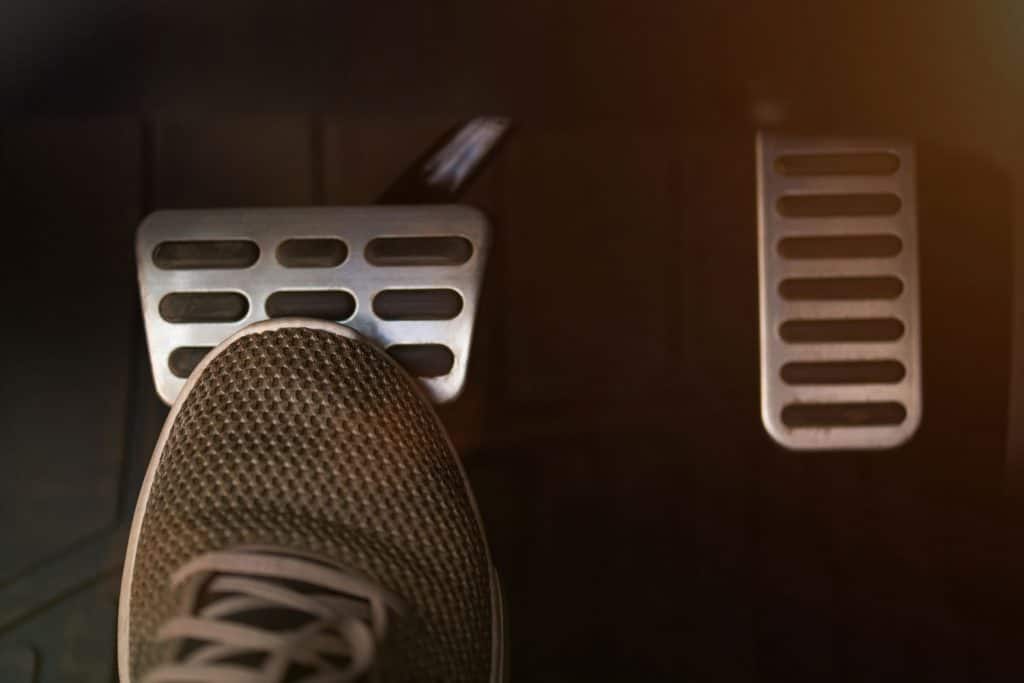Exhaust braking is an impressive engineering phenomenon that makes modern diesel engines that much more functional. Would you like to know if exhaust brakes are hard on an engine? Well, we have researched this topic and have answers for you.
Exhaust braking is not hard on your engine. Some Dodge truck models before 2006 had reverse-thrust bearing problems due to exhaust brakes. Starting in 2006, Dodge built engines compatible with exhaust brakes.
In this article, we'll compare exhaust brakes to engine brakes, and we'll determine whether exhaust brakes use more fuel. We'll also discuss how effective exhaust brakes are and how to use them best.
Finally, we will discuss how an exhaust brake works on a 6.6 Duramax. We will also look at if engine braking is the same as downshifting. Keep reading to learn more.
Are Exhaust Brakes Hard On Engines?
Exhaust brakes are beneficial for your engine, aiding in vehicle deceleration without inducing wear.
Some Dodge trucks had reverse thrust bearing problems before 2006 caused by exhaust brakes. After 2006, Dodge made the engines work properly with exhaust brakes.
Does An Exhaust Brake Use More Fuel?

Exhaust brakes are important for controlling a vehicle's speed. This helps extend the life of the service brakes.
Their operation involves restricting the exhaust flow from the engine, creating a back pressure that retards the engine's rotation. This process doesn’t require extra fuel, rendering exhaust brakes a fuel-neutral component in a vehicle.
Here’s a further elucidation on how exhaust brakes operate in regard to fuel consumption:
Back Pressure Generation:
Upon activating the exhaust brake, a valve within the exhaust system closes, limiting the exhaust gas flow. This action creates back pressure. It slows the engine and vehicle without needing more fuel.
Indirect Fuel Efficiency Benefits:
Exhaust brakes aid in vehicle deceleration, especially in downhill terrains or dense traffic, reducing the reliance on service brakes. This can lead to more consistent driving speeds, potentially improving fuel efficiency over time as less acceleration is needed post-deceleration.
Glow Plugs and Fuel Efficiency:
Glow plugs are essential for cold-start scenarios in diesel engines. They warm up the combustion chamber to ensure proper fuel ignition. They also enable efficient combustion.
However, once the engine warms up to the operating temperature, glow plugs are deactivated. At that point, they have no further influence on fuel efficiency. The deactivated glow plugs also do not impact exhaust brake operation.
Fuel Efficiency in Modern Diesel Engines:
Modern diesel engines with exhaust brake features often come with additional functionalities aimed at enhancing fuel efficiency. For instance, some systems may cut off the fuel injection to certain cylinders during the exhaust brake activation, preventing fuel wastage while aiding in vehicle deceleration.
Impact on Driving Dynamics:
The use of exhaust brakes can lead to a smoother driving experience, marked by less frequent harsh braking and acceleration cycles. This smoother driving style can, in turn, contribute to improved fuel efficiency.
What Is The Difference Between An Engine Brake And An Exhaust Brake?
Engine and exhaust brakes are fundamental in managing speed and enhancing safety in vehicles, notably in trucks, by reducing the dependency on service brakes. Although they share the common goal of decelerating the vehicle, their operational mechanisms and impacts are distinct.
Engine Brake:
Often referred to as a Jake brake, an engine brake operates within the engine's valve train. It modifies the valve timing to release compressed air in the cylinders during the peak of the compression stroke, producing a braking force.
This action retards the engine's rotation and the vehicle's speed, providing potent stopping power. Engine brakes are highly effective for trucks navigating downhill or through heavy traffic. However, they have a notable downside - they generate a considerable amount of noise, which can be disruptive in certain environments.
Exhaust Brake:
On the flip side, an exhaust brake works by restricting the exhaust gases exiting the engine. It achieves this by closing a valve located on the outlet side of the turbocharger, creating back pressure against the pistons during their exhaust stroke.
This mechanism hinders the engine's rotation, aiding in vehicle deceleration. Although not as powerful as engine brakes, exhaust brakes offer substantial deceleration assistance, especially in downhill or high-traffic conditions. A significant advantage of exhaust brakes is their quiet operation, making them more suitable for use in noise-sensitive areas.
Both engine and exhaust brakes play pivotal roles in ensuring vehicle safety, extending brake longevity, and contributing to a balanced driving experience. Their utilization helps in managing vehicle speed effectively, thereby promoting safer driving conditions and prolonged brake life.
How Effective Are Exhaust Brakes?

Exhaust brakes prove to be efficacious, particularly in managing a controlled descent downhill without excessive reliance on service brakes. They supply between 60% and 80% of the engine's peak braking force, delivering a quieter yet efficient braking solution.
Should I Drive With The Exhaust Brake On?
It's prudent to drive with the exhaust brake activated as it facilitates vehicle deceleration without inflicting any damage to the engine.
Additionally, it contributes to reducing soot accumulation in the turbo and prolongs the lifespan of your service brakes, rendering it a favorable practice.
How Does An Exhaust Brake Work On 6.6 Duramax?
In a 6.6 Duramax engine, exhaust brakes operate by positioning a butterfly valve in the exhaust pathway post-turbocharger. This action creates back pressure, aiding in engine deceleration.
The exhaust brake can be activated or deactivated with a simple switch. Some models offer partial engagement for a more nuanced braking experience, allowing better control during deceleration.
Is Engine Braking The Same As Downshifting?
No, engine braking and downshifting are separate techniques employed for vehicle deceleration, each with its unique operational mechanism.
Engine Braking
Engine braking leverages the engine's natural resistance to slow down the vehicle. When activated, it creates a retarding force by blocking the engine's air intake, forming a vacuum that resists piston movement.
A notable feature of engine braking is the loud noise it produces, leading to its prohibition in certain residential areas.
The retarding force from engine braking diminishes over time, necessitating alternative braking methods, especially in extended deceleration scenarios like descending a long, winding hill.
Downshifting
Contrarily, downshifting entails lowering the vehicle's gear to change the gear ratio. This change requires more engine revolutions to maintain the same speed, effectively using the engine's resistance to slow down the vehicle.
Downshifting results in a higher-pitched engine revving sound, which is not as loud or disruptive as the noise from engine braking, making it acceptable in residential areas.
Unlike engine braking, downshifting doesn't have a finite limit. Drivers can downshift as needed to control their speed without worrying about "running out" of deceleration capability.
However, excessive downshifting can strain the transmission, which is why it's often combined with engine braking and service brakes for a balanced braking approach.
Final Thoughts
Exhaust brakes are mild on your engine. They are important in some situations. Using them can prolong the life of other braking systems. Understanding the different braking methods is key.
Drivers should know how to use them correctly. This will help you choose the right braking based on driving conditions. This knowledge fosters a safer and more fuel-efficient driving experience and ensures the durability of your vehicle’s braking systems.
We hope you enjoyed this article. If you would like to learn more, check out these other posts:
10 Types Of Vehicle Brakes And Braking Systems To Know
What Happens If Your Brakes Overheat?


Just an awesome informative article about exhaust brakes. I have got some useful information about it. Looking forward to getting another good resource about the exhaust systems. Do you have any articles on it?
BTW, many many thanks for sharing this awesome article.
Thanks.
Patrick Jordan
What if it doesn’t have glow plugs?